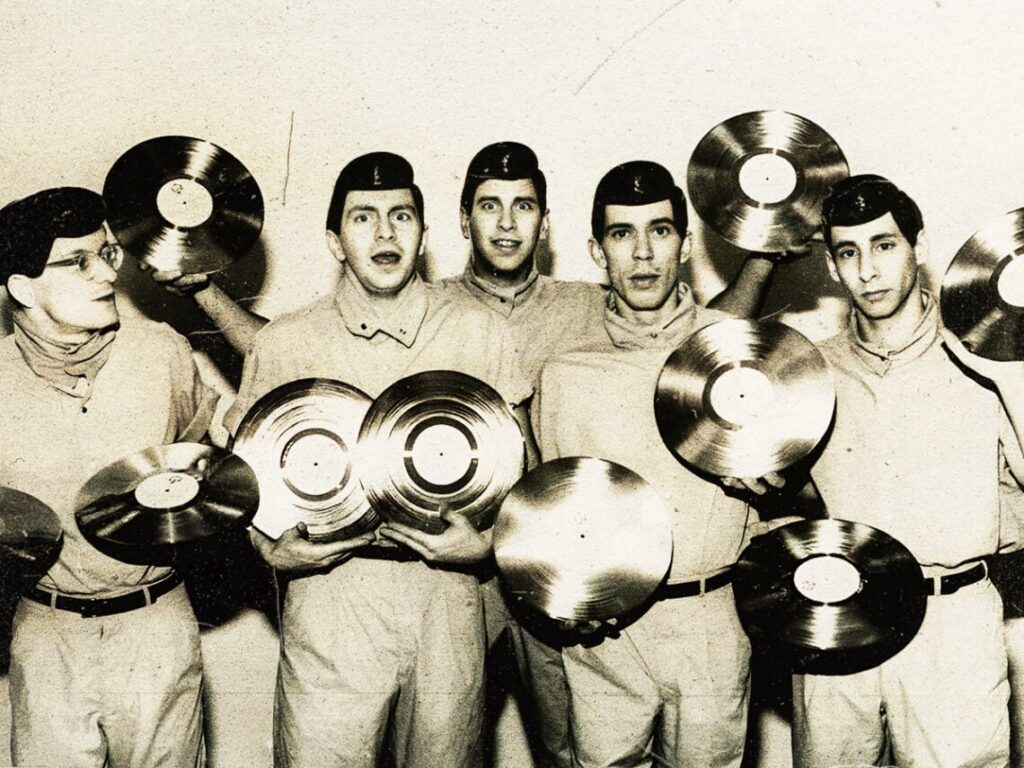‘Duty Now for the Future’: The Devo album that sounds better on 8-track
 Posted On
Posted On
(Credits: Far Out / Alamy)
There is a seemingly endless debate among audiophiles over what the greatest music format of all time is. Today, the market is dominated by online streaming and downloads, which can often – though not always – produce some very high-quality audio. For those who prefer physical media, vinyl or CD seems to be the way to go, though cassettes have made something of a resurgence in recent years, too. However, these are far from being the only formats out there, with multiple mediums now lost to obsolescence, like the 8-track cartridge.
The 8-track cartridge came onto the scene in the mid-1960s and is akin to a single-reel cassette tape, capable of playing up to 80 minutes of audio on a loop. This made the format popular with motorists as there was no need to eject the tape to turn it over, like with a compact cassette. Nevertheless, the cassette reigned supreme, and 8-track cartridges fell out of favour with the music-buying public during the early 1980s. The 8-track is scarcely mentioned anymore, but it never lost favour with Devo’s Mark Mothersbaugh.
Mothersbaugh – and Devo, by extension – always favoured the weird and wonderful. From their early days at Kent State University, the band pursued radical, revolutionary and experimental ideas within their material. Written off as a novelty act by many critics at the time, largely as a result of their image and stage outfits, Devo succeeded in creating some of the most groundbreaking electronic music of the 1970s and beyond. Mothersbaugh was an essential part of that sound, and he was constantly dreaming of ways to improve the band’s image and material.
The early albums released by Devo are nothing short of genius, subverting expectations and establishing themselves as true artists rather than pithy electro-pop stars. However, Mothersbaugh is something of a perfectionist, and Devo’s sophomore effort, Duty Now for the Future, is still the cause of some regret for the keyboardist and lead singer. “I really didn’t like the way our final mix came on that album, it was too clean,” he recently told Amoeba Music.
Luckily for Mothersbaugh, though, Duty Now for the Future was released in 1979, when 8-track cartridges were still being produced on a commercial scale. The fuzzy, generally lo-fi quality of 8-track tapes seemed to solve the issue of the album being “too clean” in a way that vinyl, compact cassette or even CD could not. “I’ve worked in every medium,” the singer shared, “I’ve put out DATs and MiniDiscs and things like that, but if you ever see the 8-track Duty Now For the Future album, get it, because I think it sounds better than the vinyl or the CD or the cassette”.
Unfortunately, for the few of you out there who still have a machine capable of playing 8-track cartridges, the Duty Now for the Future album was only released on 8-track in the US and Canada, meaning they are pretty hard to come by in the 21st century. The deterioration of tape over time also means that the cartridges won’t necessarily sound the same as what Mothersbaugh remembers, though it would probably fit into the ‘devolution’ ethos of the band itself.
The death of the 8-track format came only a few years after Duty Now for the Future was released, being phased out of stores around 1982. However, the format has recently found favour with vintage audio enthusiasts and music obsessives, predominantly as a novelty rather than a go-to music listening experience. So, it seems as though only a lucky few will be able to hear Duty Now for the Future the way that Devo’s Mark Mothersbaugh originally intended it to be heard.


